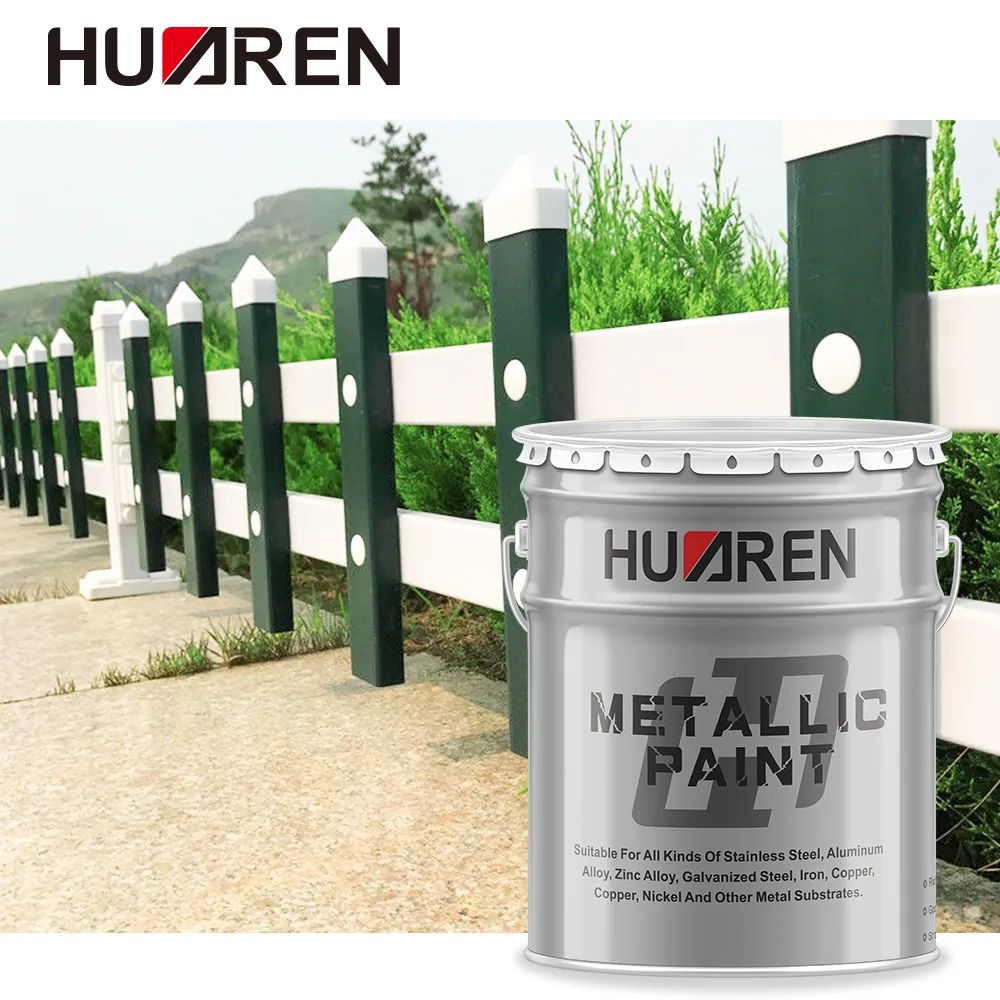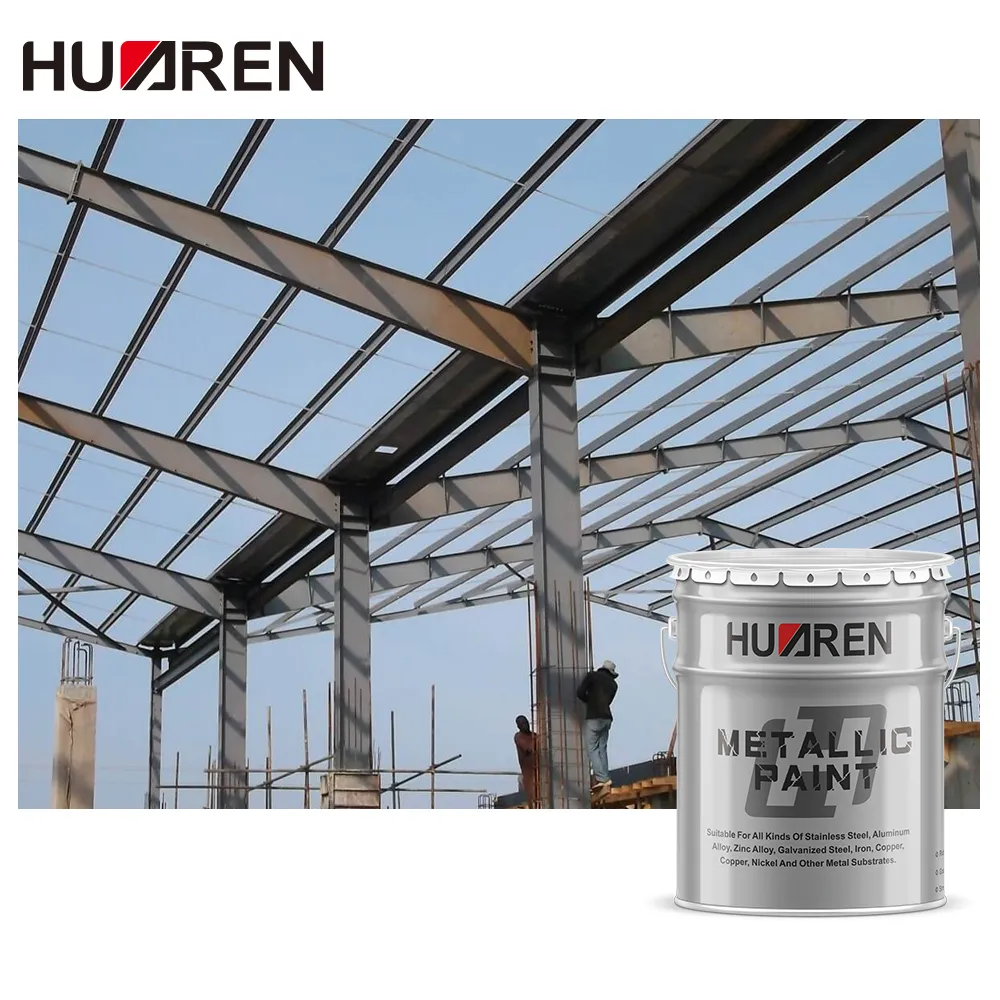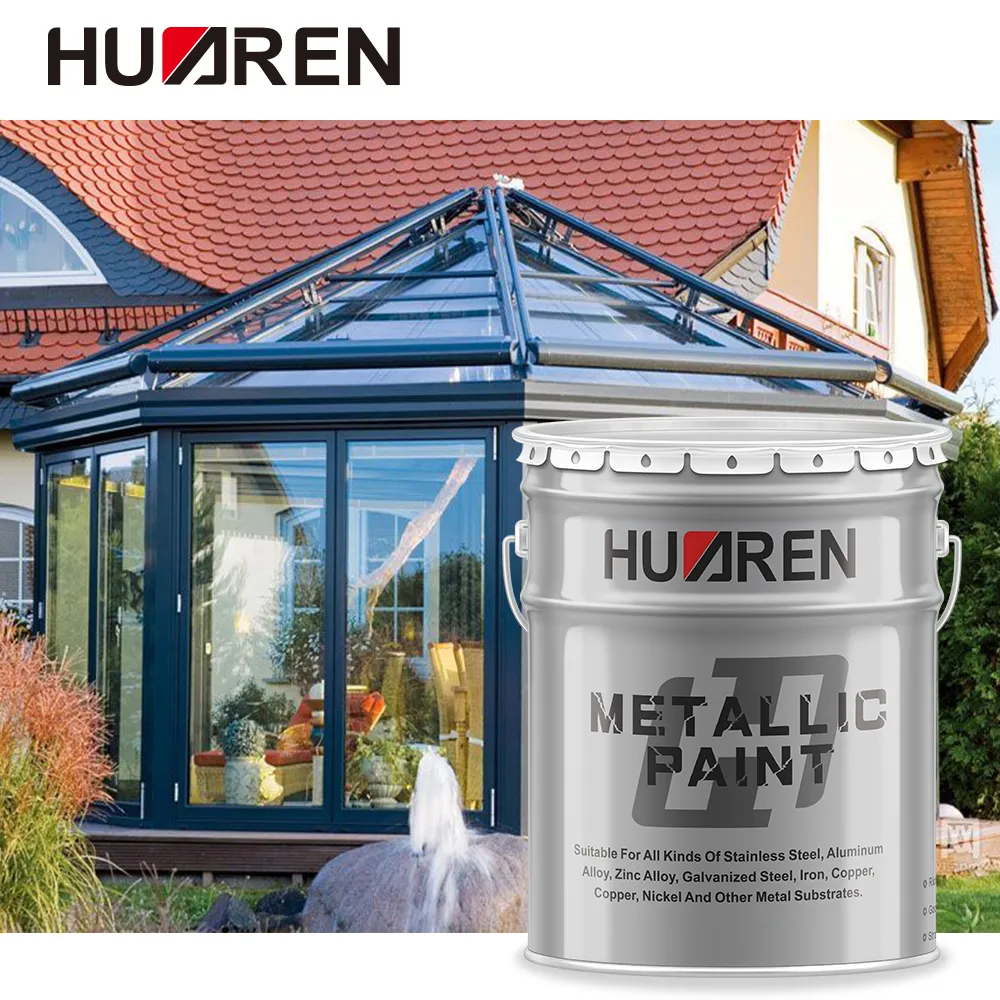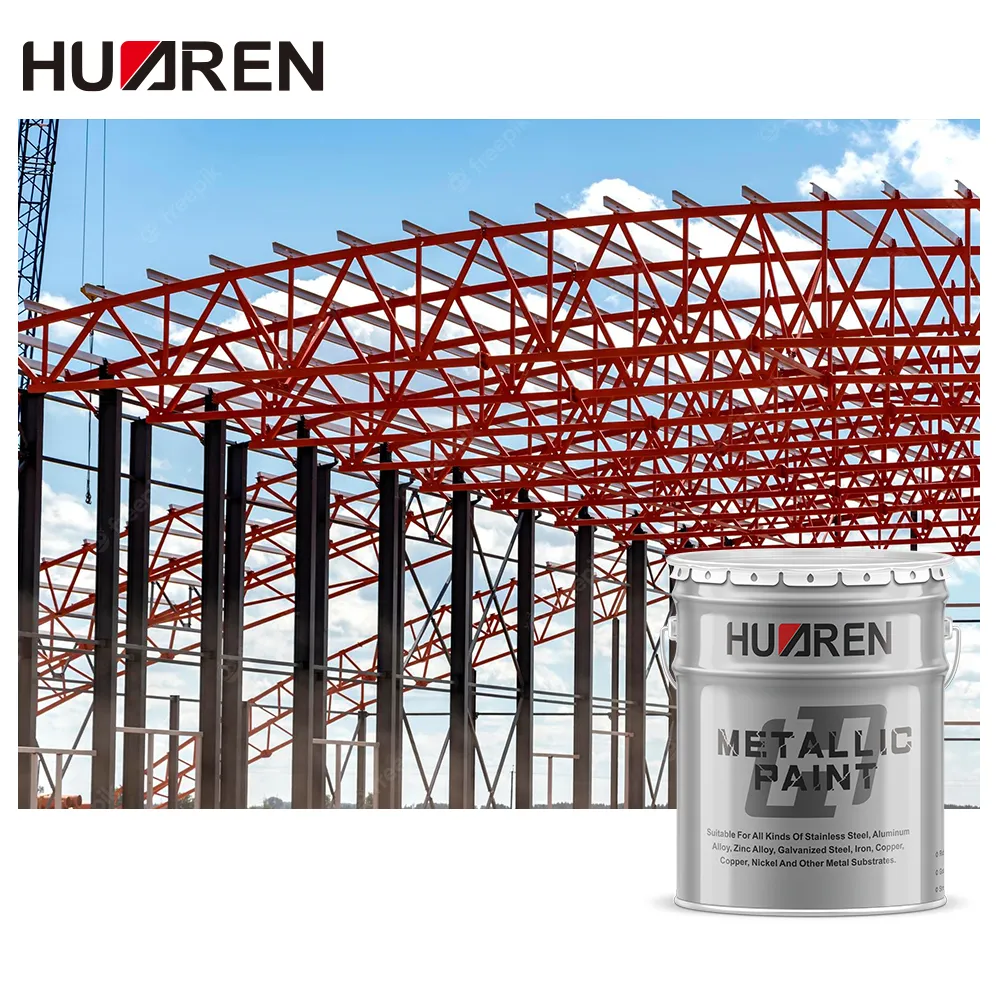In the field of industrial coating, the choice of primer is crucial. It not only affects the anti-corrosion effect, but is also directly related to the durability and reliability of the entire coating system. Zinc-rich primer and epoxy primer are two common and widely used types of primers. They each have unique chemical compositions and application properties, but are often confused.
So, are these two primers really the same? What are the differences between them? Which one should be chosen under what circumstances? This article will provide an in-depth analysis of the differences between zinc-rich primers and epoxy primers and explore their pros and cons in practical applications.

What is Zinc Rich Primer?
Zinc-rich primer is an anti-corrosion primer with zinc powder as the main component. It is usually used for the protection of steel structures and metal surfaces. Its distinctive feature is its high zinc powder content, which usually accounts for 70% to 90% of the weight ratio. Zinc-rich primer takes advantage of the electrochemical protection principle of zinc, that is, zinc is more active than iron. When the coating is damaged, zinc acts as an anode and is corroded first, thereby protecting the steel substrate from corrosion.
What are the main features of zinc-rich primer?
Zinc-rich primer is widely used mainly because of its following characteristics:
●Electrochemical protection: Zinc-rich primer protects the steel substrate through sacrificial anodes. This kind of protection is not just shielding protection, but actively sacrifices zinc to protect the steel, thus extending the service life of the steel.
● Excellent anti-rust performance: Due to the anodic protection effect of zinc, zinc-rich primer can provide effective anti-rust protection in extremely harsh environments, especially in marine, industrial atmospheres and high-humidity environments.
● Good high temperature resistance: Zinc-rich primer has excellent heat resistance and is suitable for use in high-temperature operating environments.
● Excellent electrical conductivity: The electrical conductivity of the zinc-rich primer coating allows it to be used as a primer for electrophoretic coating and is also suitable for certain specific welding processes.
What are the application fields of zinc-rich primer?
Zinc-rich primers are widely used in bridges, marine facilities, petrochemical equipment, storage tanks, transmission towers and other fields. Especially in highly corrosive environments, zinc-rich primers are the first choice due to their excellent protective effects.

What is an epoxy primer?
Epoxy primer is an anti-corrosion primer with epoxy resin as the main component, usually mixed with a curing agent. Epoxy resin has excellent adhesion, mechanical strength and chemical resistance, so epoxy primers are widely used in anti-corrosion coatings on various substrates. Epoxy primers are often used as the first layer in a multi-layer painting system to ensure that other coatings will adhere firmly to the substrate surface.
What are the main features of epoxy primer?
The reason why epoxy primers are widely used in industrial and architectural coatings is mainly due to the following characteristics:
●Excellent adhesion: Epoxy primer can firmly adhere to various substrates such as metal and concrete to form a strong coating.
● Chemical resistance: Epoxy primer is resistant to acids, alkali, salts and various chemical solvents, and is suitable for use in chemical plants, sewage treatment facilities and other environments.
● Good mechanical properties: The coating formed by epoxy primer has high hardness, good wear resistance, and can resist external impact and friction.
● Low water permeability: Epoxy primer has extremely low water vapor transmission rate, which can effectively prevent moisture from penetrating into the substrate, thereby preventing corrosion of the substrate.
What are the application areas of epoxy primer?
Epoxy primers are commonly used in shipbuilding, machinery and equipment, building steel structures, underground pipelines and other fields. Especially in environments that require extremely high adhesion and corrosion protection, epoxy primers play an irreplaceable role.

Zinc Rich Primer Vs. Epoxy Primer: Are They The Same?
The difference between anti-corrosion principles
The biggest difference between zinc-rich primers and epoxy primers is their anti-corrosion principles. Zinc-rich primer prevents steel corrosion through the anodic protection of zinc, which is an electrochemical protection. The epoxy primer forms a dense shielding layer to isolate moisture and oxygen and prevent the oxidation of the substrate, which is a physical shielding protection. Therefore, zinc-rich primers are more suitable for steel structures that require long-term exposure to harsh environments, while epoxy primers are more suitable for applications that require high-strength adhesion and chemical resistance.
The difference in adhesion
Epoxy primers are commonly used for surface preparation on a variety of substrates, whether metal or concrete, due to their excellent adhesion. Although zinc-rich primer also has good adhesion on metal surfaces, its adhesion mainly depends on the quality of pre-treatment of the substrate, which generally requires the surface to be clean and have sufficient roughness. Therefore, in terms of adhesion, epoxy primer has certain advantages, especially when coating smooth surfaces such as stainless steel and aluminum, epoxy primer performs better.
The difference in weather resistance
Epoxy primers have relatively poor weather resistance and are prone to chalking and discoloration when exposed to sunlight for a long time. Therefore, when used outdoors, a topcoat with stronger weather resistance is usually required. The zinc-rich primer has better weather resistance, especially in harsh outdoor environments, and its protective effect is still significant. However, zinc-rich primers are prone to white rust in humid environments due to their high zinc powder content and require regular maintenance.
The difference in construction technology
The construction process of epoxy primer is relatively simple and is suitable for a variety of coating methods, such as spraying, brushing, roller coating, etc. Its curing speed is fast, and it can meet the requirements of the next process soon after construction. The construction requirements for zinc-rich primers are relatively high, especially in environments with high air humidity. Zinc powder can easily absorb moisture and agglomerate, affecting the construction quality. At the same time, zinc-rich primers cure slowly and usually require a longer curing time to achieve the best protective effect.
Differences in applicable occasions
Zinc-rich primer is suitable for protecting steel structures in extremely corrosive environments, such as offshore platforms, port facilities, bridges, etc. It performs particularly well in applications such as power plants and petrochemical facilities that require long-term exposure to highly corrosive atmospheres. Epoxy primers are more suitable for applications requiring extremely high adhesion, chemical resistance and mechanical properties, such as chemical plants, sewage treatment plants, underground pipelines and mechanical equipment.

Combination application of zinc-rich primer and epoxy primer
In some complex anti-corrosion coating systems, zinc-rich primers and epoxy primers are not opposing choices, but can be used in combination to bring into play their respective advantages. For example, on structures that require extremely high anti-corrosion properties, such as bridges and marine facilities, a zinc-rich primer is often used as the base layer to provide anode protection, and then an epoxy primer is coated on top of it to enhance adhesion and shielding protection. Finally, apply a weather-resistant topcoat, such as polyurethane topcoat or fluorocarbon topcoat. This combined application maximizes the service life of the coating system while providing all-round protection.
In conclusion
Zinc-rich primer and epoxy primer each have their own unique advantages and applicable occasions in anti-corrosion coating, but they are not the same. Zinc-rich primer takes the anode protection of zinc as its core and is suitable for the protection of steel structures in extremely corrosive environments. Epoxy primer, with its excellent adhesion and chemical resistance, is suitable for anti-corrosion coating on a variety of substrates.

